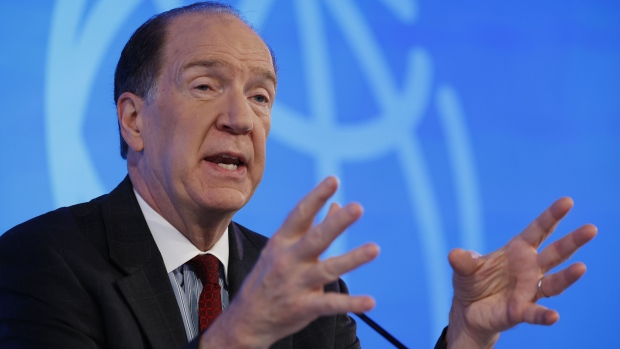Apr 13, 2023
World Bank Touts Currency Reform to Lure Investment to Ethiopia
, Bloomberg News

(Bloomberg) -- Improvements to Ethiopia’s exchange-rate system are being considered that would help draw more capital to the Horn of Africa nation, World Bank President David Malpass said.
Foreign-currency shortages have plagued the country and led the authorities to restrict allocations to private industry. The nation has an official exchange that’s currently at about 54 per dollar — little changed since the start of the year — and a parallel rate that’s almost double that on the streets of the capital, Addis Ababa.
“The official exchange rate for a narrow group of people is very expensive,” Malpass told reporters Thursday in Washington. “Right now, the exporters keep their funds outside Ethiopia. And so if they unified the exchange rate, which is under discussion within their economic program, then there would be a flood of investment back to Ethiopia.”
International Monetary Fund officials traveled to Ethiopia last month to discuss a new economic-support program as the country emerges from two years of civil war that hobbled what was once Africa’s fastest growing economy. The government has asked for IMF assistance as it needs to pay for post-conflict reconstruction and bolster its depleted foreign-currency reserves.
An IMF deal would pave the way for Ethiopia to restart delayed debt-restructuring plans, two years after it first sought relief under the Group of 20 nations’ so-called Common Framework. The nation has $1 billion of eurobonds maturing next year.
Read more: S&P Sees Ethiopia IMF Deal in Reach, Paving Way for Debt Relief
--With assistance from Samuel Gebre.
©2023 Bloomberg L.P.





